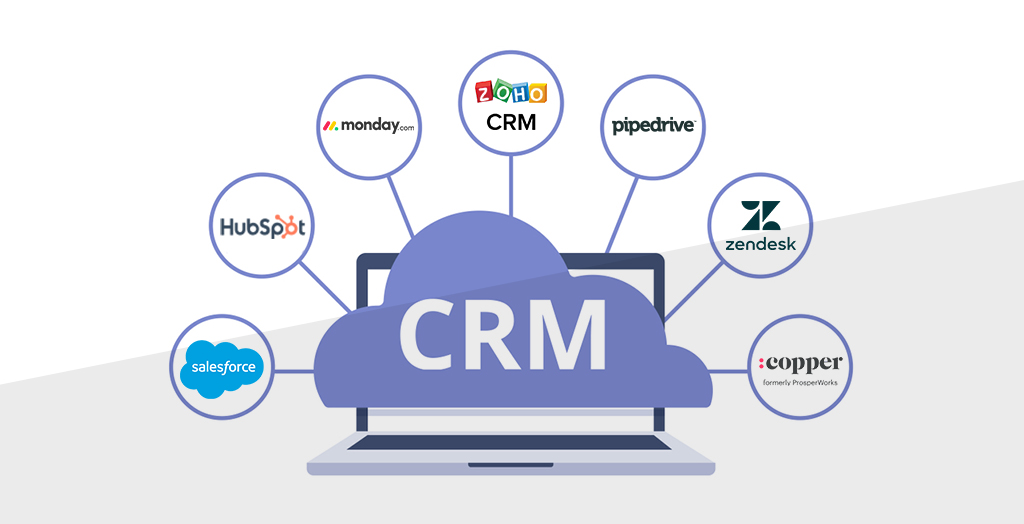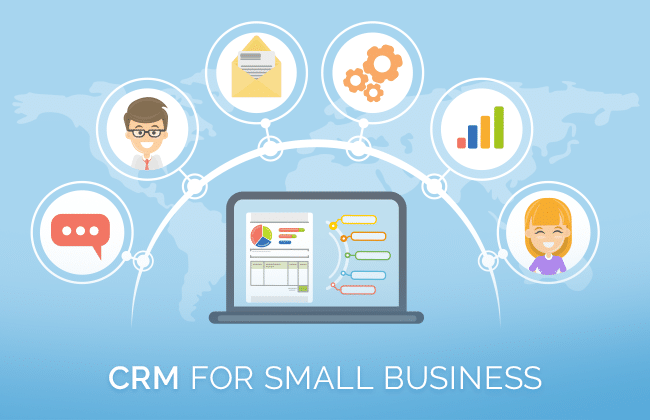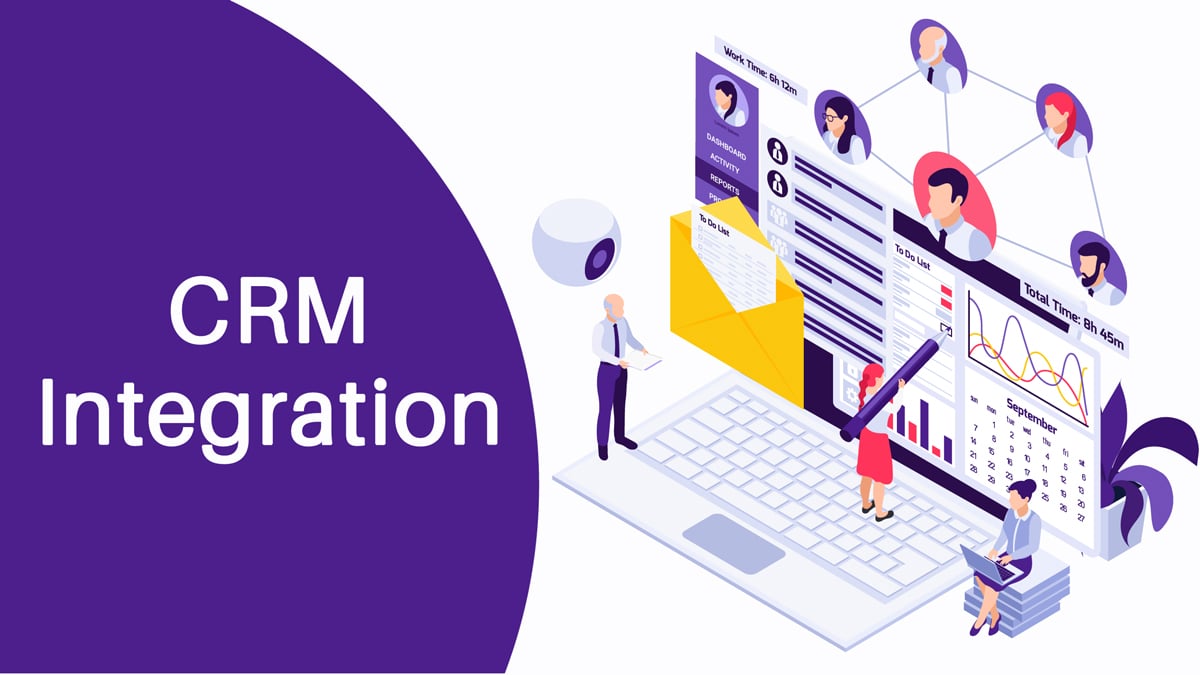Rev Up Your Business: The Best CRM Systems for Small Mechanics in 2024

Running a small mechanic shop is a demanding job. You’re juggling a million things at once: scheduling appointments, ordering parts, managing inventory, communicating with customers, and of course, fixing cars. In the whirlwind of it all, it’s easy for things to slip through the cracks. That’s where a Customer Relationship Management (CRM) system comes in. Think of it as your shop’s central nervous system, keeping everything organized and running smoothly. But with so many CRM options out there, finding the right one for a small mechanic shop can feel overwhelming. This article will break down the best CRM systems tailored specifically for your needs, helping you choose the perfect tool to streamline your operations, boost customer satisfaction, and ultimately, drive more business.
Why Small Mechanic Shops Need a CRM
Before we dive into the specifics, let’s talk about why a CRM is essential for your shop. In the past, many small businesses relied on spreadsheets, sticky notes, and memory to manage customer information. While these methods might have worked in the past, they’re simply not sustainable in today’s fast-paced world. A CRM offers a multitude of benefits:
- Improved Customer Relationships: A CRM centralizes all customer data, including contact information, service history, vehicle details, and communication logs. This allows you to personalize interactions, remember important details, and build stronger relationships. Happy customers are loyal customers, and loyal customers are the lifeblood of any business.
- Streamlined Operations: CRM systems automate many time-consuming tasks, such as appointment scheduling, follow-up reminders, and service reminders. This frees up your time to focus on what you do best: fixing cars.
- Increased Efficiency: With all your information in one place, you can quickly access customer records, track service requests, and manage your workflow more efficiently. This translates to less wasted time and more productivity.
- Better Communication: CRM systems often include features for email marketing, SMS messaging, and other communication channels. This allows you to keep your customers informed about promotions, service updates, and other important information.
- Data-Driven Insights: Many CRM systems offer reporting and analytics tools that provide valuable insights into your business performance. You can track key metrics, identify trends, and make data-driven decisions to improve your profitability.
Key Features to Look for in a CRM for Mechanics
Not all CRM systems are created equal. When choosing a CRM for your mechanic shop, consider these essential features:
- Customer Database: The core of any CRM is its ability to store and manage customer information. Look for a system that allows you to easily add, update, and search customer records. Make sure it can store essential information like contact details, vehicle make and model, service history, and communication logs.
- Appointment Scheduling: A good CRM should include an appointment scheduling feature that allows you to manage appointments, send reminders, and track appointment history. Ideally, it should integrate with your calendar and allow customers to book appointments online.
- Service History Tracking: This is critical for mechanics. The CRM should allow you to track all services performed on a vehicle, including the date, description of work, parts used, and labor costs. This information is invaluable for providing accurate estimates, tracking warranty claims, and building customer trust.
- Vehicle Management: Some CRM systems offer vehicle management features that allow you to store detailed information about each vehicle, such as VIN, license plate, and service records. This can streamline the service process and provide a more personalized experience for your customers.
- Inventory Management (Optional but Recommended): If you sell parts, consider a CRM that integrates with inventory management. This allows you to track your stock levels, manage orders, and ensure you always have the parts you need on hand.
- Communication Tools: The CRM should offer communication features such as email marketing, SMS messaging, and the ability to send automated follow-up reminders. This will help you stay in touch with your customers and keep them informed about your services.
- Reporting and Analytics: Look for a CRM that provides reporting and analytics tools to track your key metrics, such as customer acquisition cost, customer lifetime value, and revenue per customer. This information will help you make data-driven decisions to improve your business performance.
- Integration Capabilities: Consider whether the CRM integrates with other software you use, such as accounting software or payment processing systems. This will streamline your workflow and reduce the need for manual data entry.
- Mobile Accessibility: In today’s mobile world, it’s essential to have a CRM that’s accessible on your phone or tablet. This allows you to access customer information, schedule appointments, and manage your shop from anywhere.
Top CRM Systems for Small Mechanic Shops in 2024
Now, let’s explore some of the best CRM systems specifically designed or well-suited for small mechanic shops:
1. ServiceTitan
ServiceTitan is a comprehensive CRM and business management platform specifically built for the home service industry, including automotive repair. While it’s a more premium option, it offers a robust set of features designed to streamline your entire operation. It handles everything from appointment scheduling and dispatching to invoicing and payment processing. It also includes features such as:
- Customer Management: Detailed customer profiles, service history tracking, and communication logs.
- Scheduling and Dispatching: Optimized scheduling, job dispatching, and technician tracking.
- Estimates and Invoicing: Professional estimates, online invoicing, and payment processing.
- Inventory Management: Integrated inventory management for parts and supplies.
- Marketing Automation: Email marketing, SMS messaging, and automated follow-up campaigns.
- Reporting and Analytics: Comprehensive reporting and performance tracking.
Pros: Highly specialized for home service businesses, comprehensive features, robust reporting, excellent customer support.
Cons: Can be more expensive than other options, may have a steeper learning curve.
2. RepairShopr
RepairShopr is a popular CRM and shop management software designed specifically for automotive repair shops. It offers a wide range of features to help you manage your customers, appointments, inventory, and finances. It’s a more affordable option compared to ServiceTitan, making it a great choice for small to medium-sized shops. Key features include:
- Customer and Vehicle Management: Detailed customer and vehicle profiles, service history tracking.
- Appointment Scheduling: Online booking, calendar integration, and appointment reminders.
- Estimates and Invoicing: Customizable estimates, invoicing, and payment processing.
- Inventory Management: Integrated inventory management for parts and supplies.
- Reporting: Reporting on sales, customer data, and other key metrics.
- Integration: Integrates with accounting software, payment processors, and other tools.
Pros: Affordable, user-friendly interface, comprehensive features, excellent customer support.
Cons: Interface might feel a bit dated compared to some competitors.
3. Shop-Ware
Shop-Ware is another well-regarded shop management system that emphasizes a modern and intuitive user experience. It focuses on streamlining the workflow from start to finish, making it easy for technicians and service advisors to manage jobs. Key features include:
- Digital Inspections: Allows technicians to perform digital vehicle inspections with photos and videos.
- Workflow Management: Streamlined workflow from appointment to invoice.
- Customer Communication: Integrated communication tools for updates and approvals.
- Parts Management: Easy parts ordering and tracking.
- Reporting and Analytics: Insights into shop performance and profitability.
Pros: Modern interface, strong focus on workflow efficiency, digital inspection capabilities.
Cons: Can be more expensive than some other options, fewer integrations compared to RepairShopr.
4. AutoLeap
AutoLeap is a cloud-based shop management software that offers a comprehensive suite of features for automotive repair shops. It focuses on providing an all-in-one solution for managing all aspects of your business. It’s known for its ease of use and mobile accessibility. Key features include:
- Customer Management: Centralized customer database with service history.
- Appointment Scheduling: Online booking, appointment reminders, and calendar integration.
- Estimates and Invoicing: Customizable estimates, invoicing, and payment processing.
- Parts Management: Integrated inventory management for parts and supplies.
- Mobile Accessibility: Access your shop data from anywhere.
Pros: User-friendly interface, mobile accessibility, all-in-one solution.
Cons: Can be limited in some advanced features compared to more specialized options.
5. Nextep
Nextep is a shop management software designed to help auto repair shops streamline their operations. It is known for its ease of use and its focus on providing features that help shops manage their customer relationships, appointments, and inventory. Key features include:
- Customer Management: Detailed customer and vehicle profiles, service history tracking.
- Appointment Scheduling: Online booking, calendar integration, and appointment reminders.
- Estimates and Invoicing: Customizable estimates, invoicing, and payment processing.
- Inventory Management: Integrated inventory management for parts and supplies.
- Reporting: Reporting on sales, customer data, and other key metrics.
- Integration: Integrates with accounting software, payment processors, and other tools.
Pros: Easy to use, offers a wide range of features, reasonable pricing.
Cons: Might not have all the advanced features of some more expensive options.
6. OpenBay Pro
OpenBay Pro is a slightly different option as it’s more focused on connecting your shop with customers looking for services. It’s a lead generation platform that integrates with your existing shop management system. It allows you to:
- Receive Online Booking Requests: Customers can request services directly through the platform.
- Manage Quotes and Estimates: Generate and send quotes to potential customers.
- Communicate with Customers: Communicate with customers throughout the service process.
Pros: Lead generation, connects you with potential customers, integrates with existing systems.
Cons: Primarily focuses on lead generation, not a full-fledged CRM or shop management system.
How to Choose the Right CRM for Your Shop
Choosing the right CRM is a crucial decision. Here’s how to make the best choice for your small mechanic shop:
- Assess Your Needs: Before you start looking at different CRM systems, take some time to assess your shop’s specific needs. What are your biggest pain points? What features are most important to you? What are your goals for using a CRM?
- Set a Budget: CRM systems vary in price, from free or low-cost options to more expensive premium platforms. Determine how much you’re willing to spend on a CRM and stick to your budget. Consider the total cost of ownership, including setup fees, monthly subscription costs, and any additional expenses.
- Research Different Options: Once you have a clear understanding of your needs and budget, start researching different CRM systems. Read reviews, compare features, and check out pricing plans.
- Request Demos and Free Trials: Most CRM providers offer demos or free trials. This is a great way to test out the software and see if it’s a good fit for your shop. Take advantage of these opportunities to get hands-on experience with the different systems.
- Consider Integration: Make sure the CRM integrates with any other software you use, such as accounting software or payment processing systems. This will streamline your workflow and reduce the need for manual data entry.
- Evaluate Customer Support: Choose a CRM provider that offers excellent customer support. You’ll likely need help with setup, training, and troubleshooting. Look for a provider that offers multiple support channels, such as phone, email, and live chat.
- Think About Scalability: Choose a CRM that can grow with your business. As your shop grows, you’ll need a CRM that can handle an increasing number of customers, appointments, and transactions.
Tips for Implementing a CRM in Your Mechanic Shop
Once you’ve chosen a CRM, the real work begins. Here are some tips to ensure a smooth implementation:
- Plan Your Implementation: Before you start implementing the CRM, create a detailed plan. This should include a timeline, a list of tasks, and the people responsible for each task.
- Import Your Data: The first step is to import your existing customer data into the CRM. This may involve manually entering data, importing data from spreadsheets, or importing data from your existing shop management system.
- Customize the CRM: Most CRM systems allow you to customize the system to meet your specific needs. Take the time to configure the CRM to match your workflow and business processes.
- Train Your Staff: Provide adequate training to your staff on how to use the CRM. This will ensure that everyone is using the system correctly and efficiently.
- Encourage Adoption: Encourage your staff to use the CRM regularly. Explain the benefits of using the system and provide support as needed.
- Monitor and Evaluate: After implementing the CRM, monitor its performance and make adjustments as needed. Track key metrics to see if the CRM is helping you achieve your goals.
The Bottom Line: Investing in Your Shop’s Future
Choosing the right CRM for your small mechanic shop is an investment in your business’s future. By streamlining your operations, improving customer relationships, and gaining valuable insights, a CRM can help you grow your business and achieve your goals. Take the time to research your options, choose the system that best fits your needs, and implement it effectively. Your customers, and your bottom line, will thank you for it.
In the competitive world of automotive repair, staying organized, efficient, and customer-focused is essential for success. A well-chosen CRM system is more than just a piece of software; it’s a strategic advantage that can transform your small mechanic shop from a struggling business into a thriving enterprise. Don’t delay, explore the options available, and embark on the journey to a more efficient, customer-centric, and profitable future for your shop.



